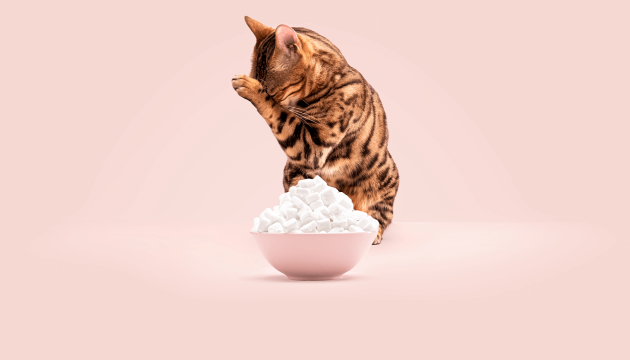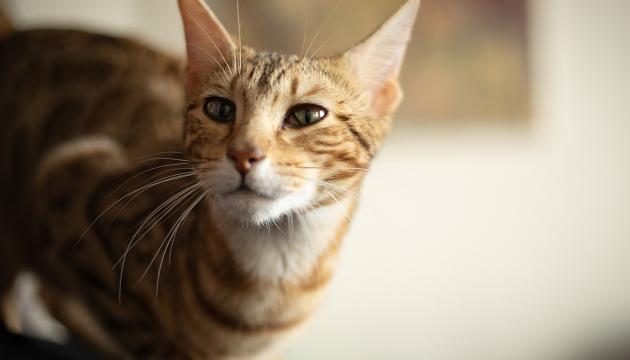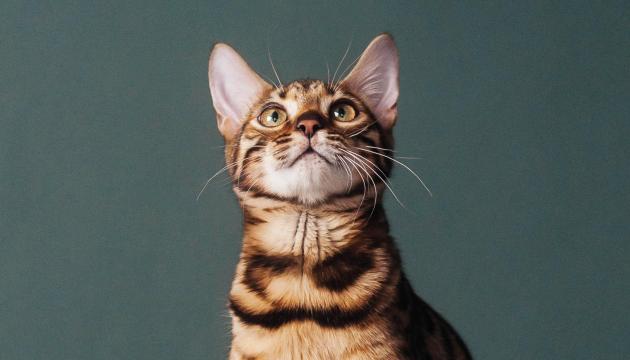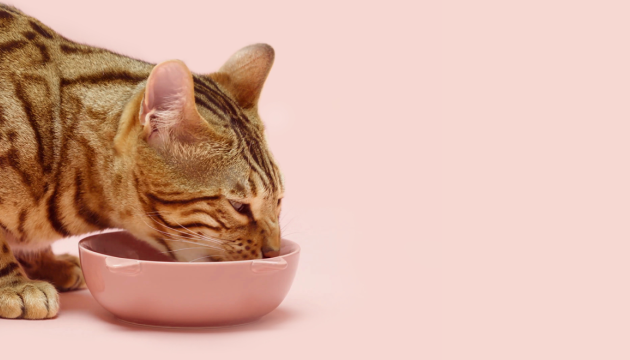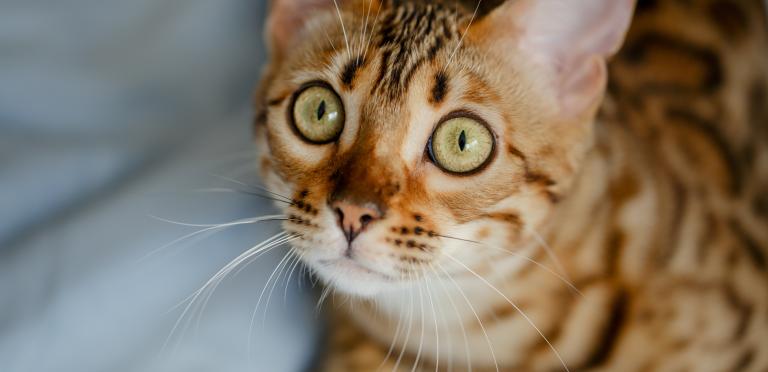

Cat’s constipation and other stomach problems
Constipation and diarrhoea are the most common stomach problems in cats. Read this article to learn more about the most common stomach issues in cats and see our tips for feeding a cat with a sensitive stomach at the end of the article.
Cat’s constipation
Factors that predispose a cat to constipation include insufficient fluid intake, a diet based on mostly dry food, lack of exercise, food that digests poorly, stress, and certain diseases.
A cat’s constipation can also be caused by a diet with too much fiber. An appropriate amount of carbohydrates will support the cat's intestinal activity, but too much fiber can interfere with the cat's digestion. Read more about the cat’s natural diet.
The only symptom of a cat's constipation may be that there are no droppings to clean in the litter box for a few days. The cat may also try to defecate, but nothing comes out. Do not hesitate to call the vet, especially if your cat is not eating or drinking and the cat’s condition gets weaker. The vet can also give you instructions for the cat’s home care. In particular, it is always important to have prolonged constipation treated by a vet to prevent damage to the cat's intestines and to ensure that the cat gets the hydration it needs.
How to prevent the cat’s constipation?
Make sure your cat gets enough water. If the cat's constipation shows up frequently, leave kibble out from the cat's diet and choose a high-quality, meat-rich wet food, which helps to keep your cat hydrated. Remember to check that the wet cat food you choose is complete food. See our instructions for identifying high-quality cat food. A good choice can be grain-free cat food with as few plant-based ingredients as possible.
To support healthy gut function the cat needs some exercise. Hence, it's important to entice the indoor cat to move, for example with predatory play. At the same time, the cat gets activation during the day.
Remember to keep your cat's litter box tidy, so that the cat doesn't start to avoid going to the bathroom because of a dirty litter box. PrimaCat can also help you with the cat litter. Read more.
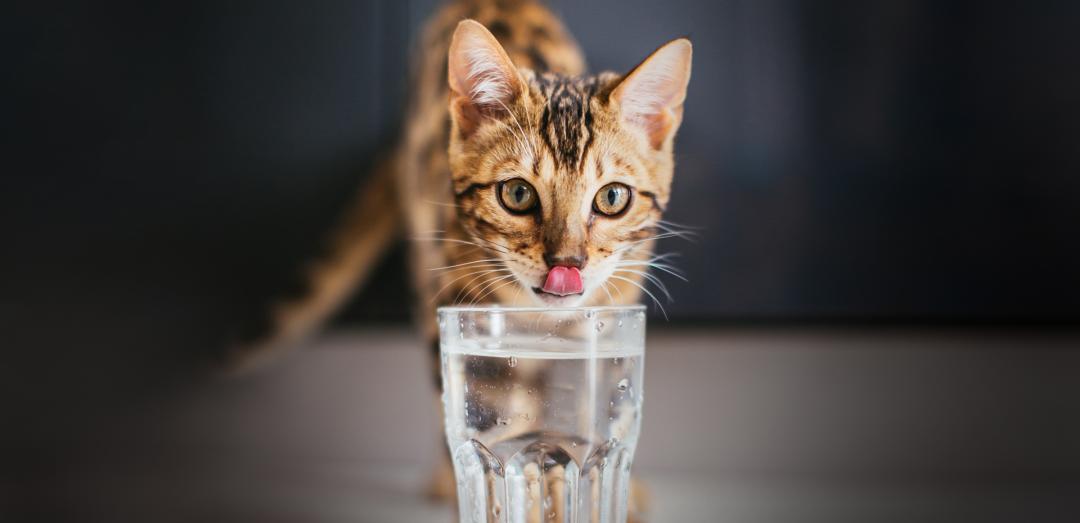
Cat’s diarrhoea
A cat's diarrhoea can be caused by, for example, sensitivity to a certain food, intestinal inflammation, stress, or too rapid change in the diet. Especially if your cat has a sensitive stomach, make the changes to its diet gradually. Read our instructions how to change the cat’s diet.
If the cat is lively and doesn’t have other symptoms, you can keep the cat at home care. But keep a close eye on the cat's condition and be prepared to ask for advice from the vet at any time.
As a small animal, a cat will quickly dehydrate if it loses a lot of fluid. Prolonged diarrhoea and loss of appetite and weight are always reasons to take your cat to the vet.
Cats have a naturally weak sense of thirst, which can make it difficult for them to maintain their fluid balance. See our tips on how to increase your cat's drinking and improve hydration with PrimaCat products.
In addition to diarrhoea, a cat’s stinky droppings can also indicate gut problems or an unsuitable diet. So, if your cat's droppings smell bad, check the cat's diet. Food that is too high in carbohydrates can be one of the reasons for loose, foul-smelling stools.
Cat vomits
Unsuitable food, eating kibble too fast, hairballs or other indigestible material in the stomach, internal parasites, and stress can make the cat to vomit.
Occasional vomiting is common in cats, but if your cat vomits regularly, the cause of the symptoms must be examined by a veterinarian. Vomiting can be associated with many diseases that require treatment, such as diabetes, inflammatory bowel disease, hyperthyroidism, and kidney and liver diseases.
You must immediately take the cat to the vet, if the cat vomits blood or the vomiting is severe and the cat refuses to eat or drink. Vomiting can also be caused by poisoning. Some cats like to nibble on houseplants, so remember to make sure that poisonous plants are out of the cat's reach.
What food for a cat with a sensitive stomach?
Wet cat food is often a good option as the main food for a cat with a sensitive stomach, because it contains water and digests better than dry food. In addition, wet food can be made without vegetable starch, unlike dry food, which requires starch to keep the kibble together.
Tips for feeding a cat with a sensitive stomach
- Offer your cat food that is tasty, easy to digest and rich in animal-based protein.
- Check the cat’s hydration and, if necessary, add extra water to your cat’s diet with PrimaCat Soup supplementary wet foods.
- Make sure your cat's food contains more protein than carbohydrates by checking the nutrition label from the packaging.
- Change your cat’s food gradually and slowly enough so that the cat’s gut has time to adjust to the new food.
- If your cat tends to gobble up its food and vomit after eating, try slow-feeder or anti-gulp bowls that are sold in pet stores.
In PrimaCat's products, you will find plenty of options for a grain-free diet suitable for a cat with a sensitive stomach. Explore our cat foods.
PrimaCat's popular Classic wet foods are grain-free complete cat foods that contain plenty of meat in a juicy jelly or rich gravy and no added sugar. Find out more about the products.

